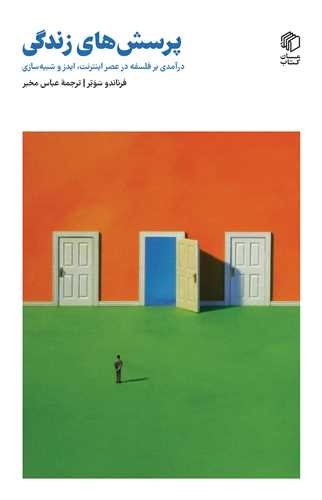Tawsi'ah yā Chapāvul: Naqsh-i Dulat dar Taḥavul-i Ṣan'atī: Persian 2022
توسعه یا چپاول:نقش دولت در تحول صنعتی
23.42 $
Share
Wishlist
Original Title:
Embedded Autonomy
ISBN:
9789647134569
Translator:
Zandbaf
,
ʻAbbās Mukhbir
Publisher:
Tarh-i naw
Age Group:
Adult
Pages:
476
Weight:
499 g
Dimensions:
14 x 21 x 4.4 cm
Book Cover:
Paperback
In recent years, debate on the state's economic role has too often devolved into diatribes against intervention. Peter Evans questions such simplistic views, offering a new vision of why state involvement works in some cases and produces disasters in others. To illustrate, he looks at how state agencies, local entrepreneurs, and transnational corporations shaped the emergence of computer industries in Brazil, India, and Korea during the seventies and eighties.
Evans starts with the idea that states vary in the way they are organized and tied to society. In some nations, like Zaire, the state is predatory, ruthlessly extracting and providing nothing of value in return. In others, like Korea, it is developmental, promoting industrial transformation. In still others, like Brazil and India, it is in between, sometimes helping, sometimes hindering. Evans's years of comparative research on the successes and failures of state involvement in the process of industrialization have here been crafted into a persuasive and entertaining work, which demonstrates that successful state action requires an understanding of its own limits, a realistic relationship to the global economy, and the combination of coherent internal organization and close links to society that Evans called "embedded autonomy."
more
در سالهای اخیر، بحث در مورد نقش اقتصادی دولت اغلب به بحثهایی علیه مداخله تبدیل شده است. پیتر ایوانز چنین دیدگاههای سادهگرایانهای را زیر سوال میبرد و دیدگاه جدیدی از این که چرا دخالت دولت در برخی موارد موثر است و در موارد دیگر فاجعه ایجاد میکند، ارائه میکند. برای نشان دادن، او به چگونگی شکلدهی سازمانهای دولتی، کارآفرینان محلی، و شرکتهای فراملی به ظهور صنایع کامپیوتر در برزیل، هند و کره در طول دهههای هفتاد و هشتاد میپردازد.
ایوانز با این ایده شروع می کند که دولت ها در نحوه سازماندهی و پیوند آنها با جامعه متفاوت هستند. در برخی از کشورها، مانند زئیر، دولت غارتگر است و بی رحمانه چیزی با ارزش در ازای آن استخراج می کند و ارائه نمی دهد. در کشورهای دیگر، مانند کره، توسعه ای است و تحول صنعتی را ترویج می کند. در کشورهای دیگر، مانند برزیل و هند، در این بین است، گاهی کمک می کند، گاهی اوقات مانع. سالها تحقیق تطبیقی ایوانز در مورد موفقیتها و شکستهای مشارکت دولت در فرآیند صنعتیسازی در اینجا به یک اثر متقاعدکننده و سرگرمکننده تبدیل شده است که نشان میدهد اقدام موفق دولت مستلزم درک محدودیتهای خود، یک رابطه واقعبینانه با اقتصاد جهانی است. و ترکیبی از سازماندهی داخلی منسجم و پیوندهای نزدیک با جامعه که ایوانز آن را «استقلال درونی» نامید.
more





















